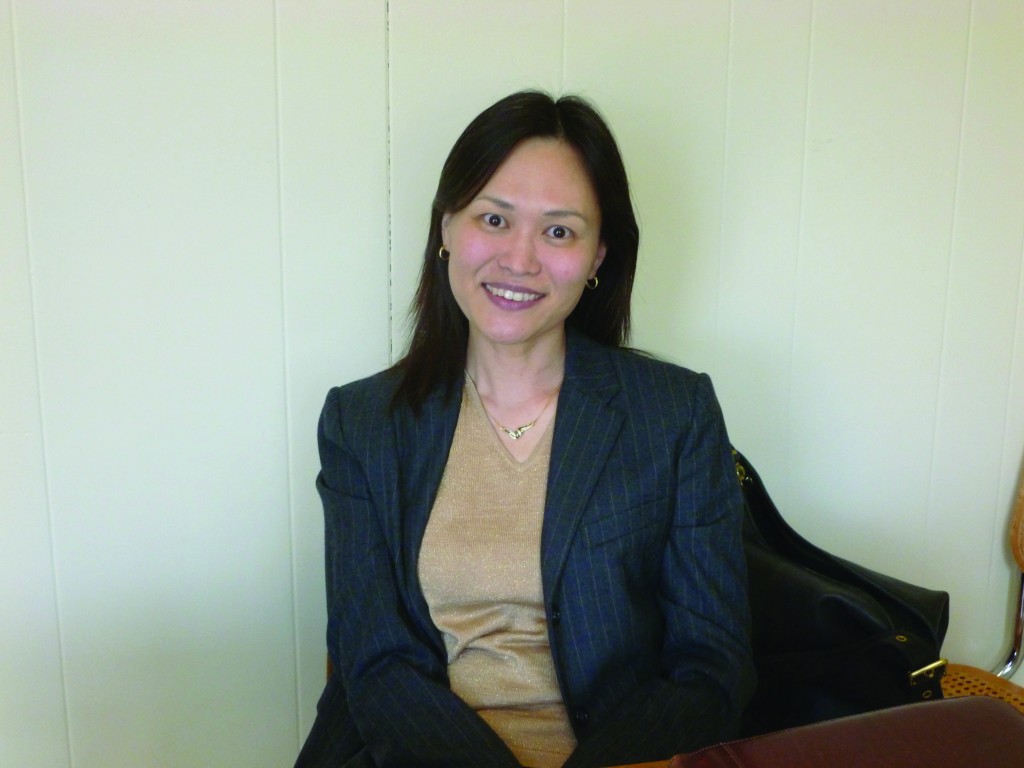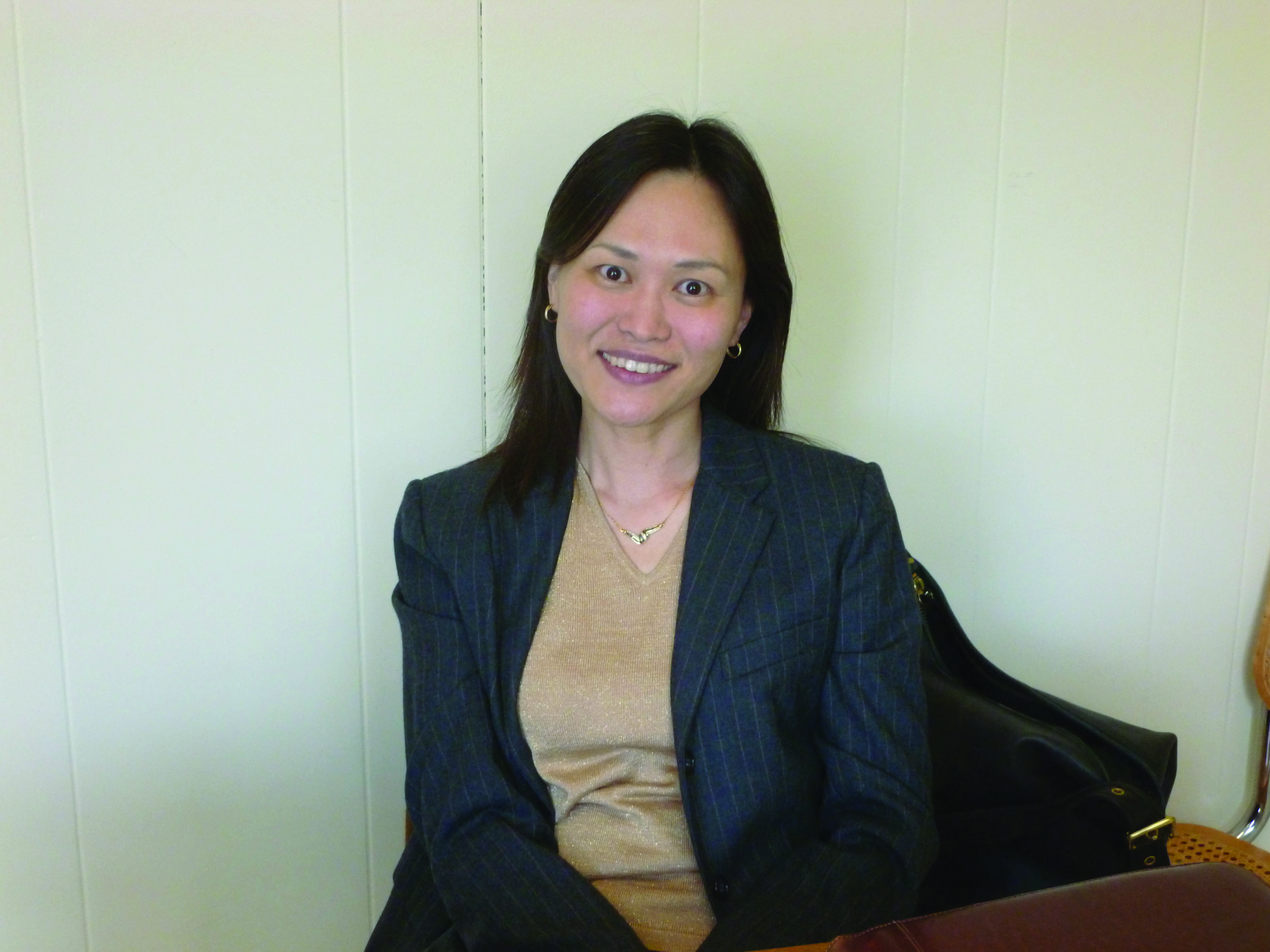Dr. Asami Segi: living a life driven by curiosity

“Curious” is how adjunct professor of Japanese Dr. Asami Segi described herself. She said that she had been “curious about everything” ever since she was little. When Segi was young, she said that was most significantly “really curious about different parts of the world.” In her early twenties, she came to an Atlanta airport as an international student, bound for Tennessee Wesleyan College in Athens, Tenn.It was in that airport restroom that Segi experienced her first culture shock, seeing restrooms with “all those gaps around the door and from the floor to about here.”
Segi held her hand parallel to the floor to demonstrate the gap between the stall door and the floor. That was one of many changes for Segi when she came to America and began a life that was very different from hers in Japan. As a child, Segi lived with her parents, brother and grandmother.
The family moved to many different cities like Kyushu and Nagasaki, but settled in Saitama, north of Tokyo. Segi left her brother, grandmother and parents to come to America as a third-year college student. She promised that she would stay two years in the United States and then return to Japan.
“I’d always wanted to go to overseas, and back then, many students went to the U.S.,” Segi said. “I decided to come here because I went to Nagasaki Wesleyan Junior College and I found Tennessee Wesleyan College.” Though Segi lived in many different types of cities in Japan, she didn’t know what to expect from East Tenn. At home in Japan, Segi could take a 15-minute train ride to the large city of Tokyo. In Athens, Tenn., Segi couldn’t even find public transportation.
“The first thing I looked for was a train or a subway,” Segi said. “Those were not available. Bus? No. I asked for a taxi, and [people] said, ‘Well, there is one gentleman that operates the taxi, but if he picks up the phone you’re lucky, because he usually won’t even pick up the phone.'” Segi spent the next two years at Tennessee Wesleyan College, where she majored in English and mass communication. “I wanted to be a reporter on a T.V. show,” Segi said. “[It] didn’t happen.”
What did happen was that Segi found a passion for education, a passion that would eventually lead her to her current position at MC. It began with an internship during her senior year of college. “We used to have a Japanese high school called Tennessee Meiji Gakuin in Sweetwater, Tenn. and they had a cultural center there,” Segi said. “As part of my internship, I was teaching Japanese there and cultural classes. I thought, ‘Wow this is interesting!’ and that was my starting point.” Segi finished her education at Tennessee Wesleyan College in 1991, the year that the Japanese economy crashed. Segi decided to stay in the United States, hoping to find a job.
Since then, Segi received a Ph.D. from the University of Tennessee in education and pedagogy. She taught Japanese at the University of Tennessee for 14 years and has worked with engineers at Denso for 16 years. Now, Segi is here at MC. “It’s just a wonderful feeling when you know they didn’t have this knowledge before, but you teach them and they now have this knowledge,” Segi said. Segi, known with respect as “Segi Sensei” by her students at MC, is appreciated for her dedication to providing a high-quality education. “Even though I just had one full year of Japanese, I feel like I’ve mastered more of Japanese than of taking three years of high school French,” said Katie Spears, a junior biochemistry major.
Robert Deighton, a junior history major with a Japanese minor, has taken several classes with Segi and participated in Japanese speech contests under her supervision. “Segi Sensei’s very devoted to teaching Japanese,” Deighton said.“Her classes are interesting, and I feel like I’ve learned a lot after taking two years of Japanese. It has been a challenging and rewarding experience.” “I’m glad Segi Sensei is here at Maryville College,” Deighton said. Junior writing/communication major Yurim Lee agreed. “I think Segi Sensei is really passionate about what she is teaching,” Lee said. While many students are grateful for Segi’s dedication and support, Segi remains humble and thankful for the opportunity to do what she wants to do in America.
“This country will give me a chance if I really try,” Segi said. “It really doesn’t matter how old you are, female, male, financial status, anything like that. It really doesn’t matter. As long as you try and have that knowledge, it will give you a chance.” Segi says she doesn’t know where she will be in the future, but that she would like to be “somewhere near an ocean.”
If Segi’s life up to this point is any indicator, curiosity will certainly drive her. You never know what’s going to happen in your life,” Segi said. “Just enjoy the unexpected part.”


I am proud to have worked with Asami at TMG when she was an intern there and taught at the TMG Cultural Enrichment Center. It was so nice to come across this articleabout her. Elaine Jo